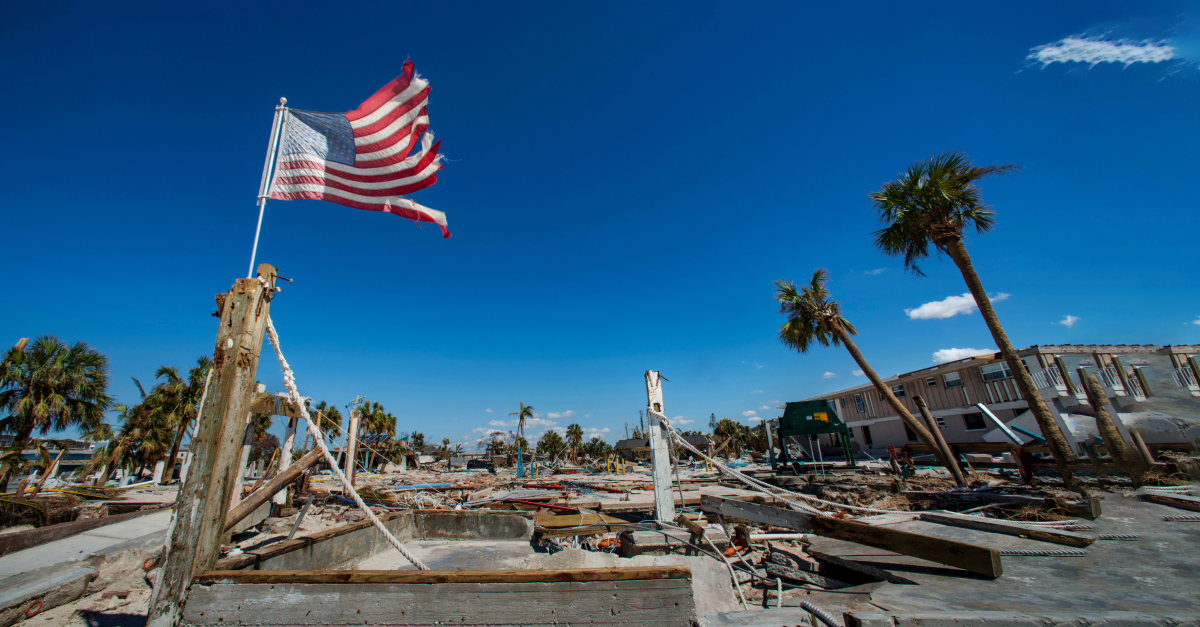Twelve Golden Rules From The Kitchen For Effective Leadership: ‘Mise En Place’
We’ve often been taught that “faster is better” when hustling to get a job done, but during my time working in the catering business, I learned...
3 min read
Merit Jun 14, 2023

This year's storms are on the way.
Our most extreme weather season has barely started, and the first named tropical storm, Arlene, has already churned through the Gulf. Meanwhile, crews in Florida are still removing over 3,000 cars embedded in the waterways surrounding Fort Myers from 2022's Hurricane Ian.
Even though it feels way too soon to turn our eyes toward coastal waters, we're facing a new round of disasters. Experts predict greater-than-average storm activity, so it's time to finish preparations for response, recovery, and mitigation plans.
This isn't as easy as it sounds. Each phase of the disaster cycle comes with enormous challenges; solving them will directly impact the number of families, homes, and businesses lost in our communities.
You dedicate hundreds of hours leading your teams through training, preparing communities and equipment for disasters, especially extreme weather events. Despite this, the overwhelming scope of impact and unpredictable circumstances make even the most common of activities, such as standing up shelters or meal distribution centers, more challenging than what you planned and trained for.
We all know there's a greater need for help than available resources can manage. As more agencies, support organizations, and volunteers arrive to help, it's impossible to capture a complete view of what resources and specialized skills are available, and where they need to be deployed. Siloed command structures and limited personnel and equipment accountability rob you of better situational awareness.
When your responders are racing to save lives, tracking and documenting activities will always feel less critical in the moment. Yet, helping communities discover a new normal after tragedy depends on FEMA reimbursements - provided only when agencies share comprehensive data and receipt trails.
Paper forms lead to inaccurate reporting, and loss of critical information, resulting in fewer recovery dollars. Considering that damages from natural disasters in the U.S. in 2022 alone cost more than $165 billion, it's clear that finding a better way to track disaster costs is urgent.
Until a state or county has experienced a disaster first-hand, it's hard to get financial planners to understand and invest resources. Many people prefer to think that severe disasters won't happen in their communities and put off projects that could limit storm impacts.
Hurricane Season often feels like Groundhog Day, with the same obstacles, conversations, and frustrations. Everyone knows what's getting in the way of better preparation, response, recovery, and strategic mitigation. Despite every effort, you may be limited by:
The secret to overcoming these obstacles is replacing slow and incomplete manual processes with new technologies - turnkey programs that digitally manage responders, volunteers, private sector contractors, and survivors; digitally track equipment, supplies, and activities; and process real-time data.
Our verified digital credentials and services:
Each disaster is unique, and many aspects cannot be foreseen, but by incorporating digital site check-in and tracking ahead of time, you can quickly deploy qualified, skilled personnel and volunteers where they are most needed once disasters strike.
Listening to our panel's discussion, It's Never Too Soon or Too Late to Plan, you'll know what steps emergency stakeholders can take for successful preparation.
Digital access credentials speed deployment and generate receipts for every check-in and check-out with location and timestamps. They automate accountability and give you a near-real-time, complete view of resource distribution during a disaster. This means better use of resources, safer site access management, and a stronger, more effective survivor support system.
Merit surveyed 500 professional and volunteer responders about their experiences with disaster site systems and processes. Download the report to read their thoughts about credentials, verification, time-tracking, reporting, security, and more.
Millions of dollars of state and federal recovery grants fail to reach disaster-impacted areas due to a lack of awareness about their availability or effective systems to capture required data.
Digitized and pre-configured federal, state, and local forms (i.e., FEMA ICS 211, 214s) make reporting easy for responders, increase the accuracy of information, provide an audit trail, and speed reimbursement with a streamlined review, approval and submission process.
Listen to our expert guest panel discussion on maximizing your FEMA cost recovery dollars this year.
Grants that help communities prevent or reduce the cause, impact, and consequences of disasters require extensive, documented applications. Detailed, verified, and automated reports generated during a Merit-supported response can provide the data validation you need to justify, prioritize, and accelerate mitigation grants preventing unnecessary harm in the future.
Nobody has time to learn to use new technology during a disaster. A million things could go wrong, and waiting for customer service states (or countries!) away is just not an option. That's why agencies have activated our Incident Management Team (IMT) during major incidents like the tragic Surfside Condominium Collapse, the COVID-19 response, and Hurricane Ian, where we tracked 7,000 responders, 26,000 meals, and 1.1 million logged hours.
We're in command centers and on the frontlines with responders in record time. Our experts provide real-time intelligence and accountability, enabling rapid response, enhanced coordination, and efficient resource allocation, resulting in quicker recovery.
There is no need to face this year's hurricane season with limited tools and processes. With Merit's agile and customizable software, fully supported on-site, you can:
Explore how Merit contributes to all phases of hurricane management: mitigation, preparedness, response, and recovery.
We’ve often been taught that “faster is better” when hustling to get a job done, but during my time working in the catering business, I learned...
Your people are your most valuable asset and your biggest competitive advantage. Invest in them wisely, and they’ll take your company places you...
Big workforce initiatives thrive on strong collaboration between ecosystem partners; however, navigating those projects may sometimes be challenging....